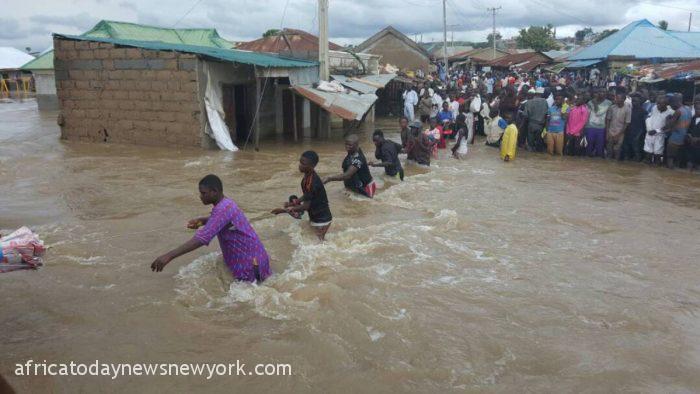The United Nations (UN) has approved the release of $10.5million from the Nigeria Humanitarian Fund (NHF) and the Central Emergency Response Fund (CERF) to help in the alleviation efforts to mitigate the impacts of the 2022 floods.
Africa Today News, New York reports that statistics which has been made public by the government have shown that the devastating flooding was the worst the country has witnessed in recent years.
The natural disaster had claimed more than 600 lives in different states, displaced at least two million people and destroyed thousands of homes.
UN Humanitarian Coordinator Matthias Schmale said he saw people struggling to eat and get clean water during his visits to Anambra, Adamawa, and Bayelsa.
On Friday, the world body announced that financial aid would provide assistance to the victims, including those ravaged by terrorism in the North-East.
Read Also: Floods: Niger Delta Reps Call Humanitarian Minister’s Sack
A statement that was made available to Africa Today News, New York indicated that a $5million NHF allocation would provide water, sanitation, health care, shelter and non-food items to over 264,000 people Borno, Adamawa and Yobe.
The fund will complement a $5.5million CERF rapid response allocation for the states most affected by flooding in Nigeria.
It targets 495,000 people in Anambra, Bayelsa, Kogi, and Niger, complementing efforts by the federal government and the Nigerian Red Cross/Red Crescent.
The flooding since July has affected more than 4.4 million citizens, and out of 2.4 million people displaced, half are in Bayelsa alone.
The floods have also damaged over 650,000 hectares of farmland across the country.
Schmale noted that the massive destruction of food crops would have implications on food security in the immediate term.
‘The urgent priority is to help affected people get back to what is left of their homes and to regain lost assets and livelihoods.
‘Farmers for example, will require seeds and other agricultural support’, the coordinator added.
The 2022 Cadre Harmonisé food security and nutrition assessment said 19.5 million Nigerians were already facing severe food insecurity pre-July.

